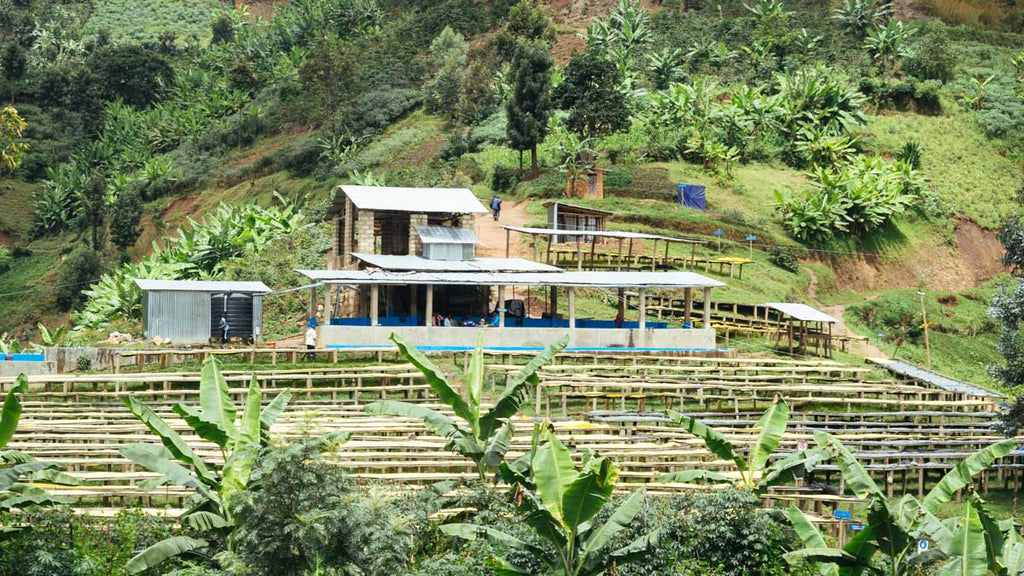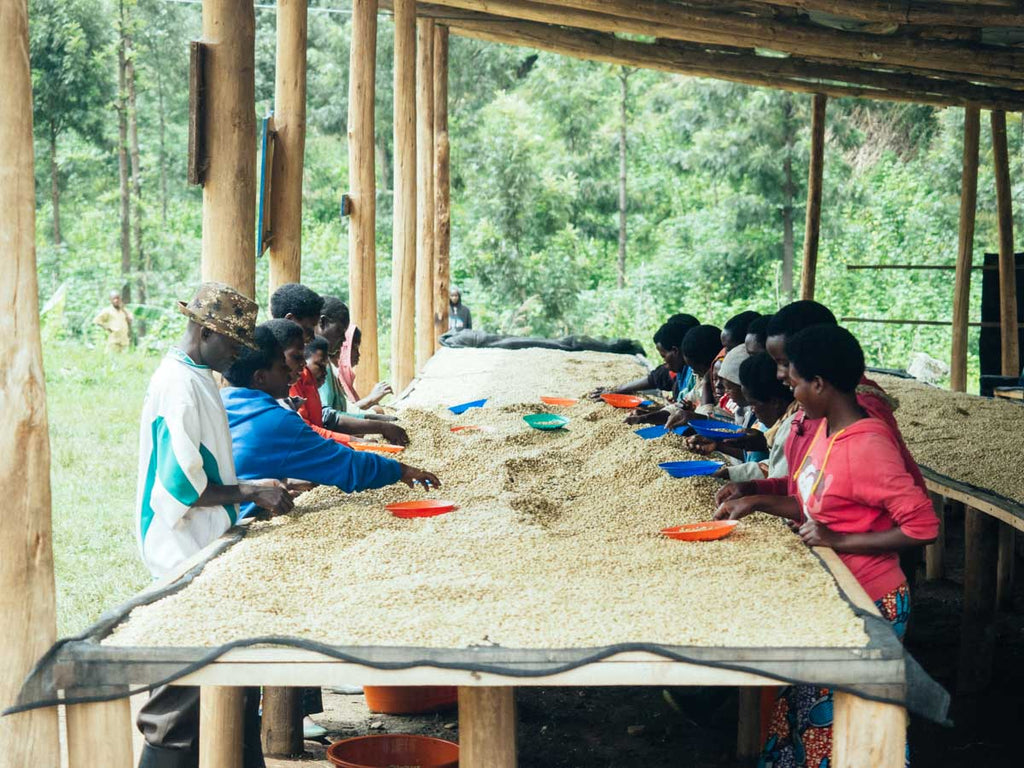Coffee in Rwanda: A Rich History and a Bright Future
When you think of Rwanda, you may think of gorillas, genocide, and reconciliation. But did you know that coffee is also a significant part of Rwanda's story? In fact, coffee is the country's largest export, and it has played a vital role in the country's economic growth and development over the years.
We've visited Rwanda many times and have been working with several producers on a direct basis for many years. This featured coffee of the month comes from Kanzu washing station with more information further down the page.
History of Coffee in Rwanda
Coffee was first introduced to Rwanda by German missionaries in the early 1900s. They brought Arabica coffee beans from neighboring countries, and by the 1930s, coffee had become a significant crop in Rwanda. In the 1950s, the Belgian colonial government encouraged the expansion of coffee production as a means of generating revenue.
However, coffee production in Rwanda was disrupted by the genocide in 1994. The civil war and genocide destroyed much of the country's coffee industry, and many coffee farmers were displaced or killed. In the years that followed, the government and various organizations worked to rebuild the coffee industry, and it has since become a major contributor to Rwanda's economy.
Significance of Coffee to Rwanda's Economy
Today, coffee is Rwanda's largest export, accounting for over 60% of the country's total exports. It is estimated that coffee provides employment for over 350,000 Rwandans, and the industry generates over $60 million in foreign exchange earnings each year.
One of the reasons that coffee is so significant to Rwanda's economy is that it is a high-quality product. Rwandan coffee is known for its bright acidity, floral notes, and fruity flavors. These characteristics are a result of the country's high altitude and volcanic soil, which provide ideal growing conditions for coffee plants.
Rwanda's coffee is also produced using sustainable and ethical practices. Many coffee farmers in Rwanda are smallholders who own just a few acres of land. These farmers receive training and support from various organizations, such as the Sustainable Harvest Coffee Importers and the Rwandan government, to produce high-quality coffee using sustainable methods. Additionally, many Rwandan coffee farmers are part of cooperatives, which allow them to sell their coffee collectively and receive a fair price for their product.
Our Rwandan coffee
We first visited Rwanda in 2015 aiming to develop some direct relationships with producers. It was an incredible visit and over the years we have been to Rwanda many times and now work directly with Bwishaza co-operative, Liza washing station and Kanzu washing station. These three producers are located in the west of Rwanda close to lake Kivu.

Kanzu washing station:
Varietal – Red bourbon
Preparation – Washed
Location – West Rwanda, near to lake Kivu
Altitude – 1600+ masl
Importer - Horsham Coffee Roaster
Although we buy most of our Rwandan coffee from Bwishaza and Liza we purchase lot 15 from Kanzu and this is the coffee our subscribers will receive in May. Kanzu is a washing station owned by the exporter Dormans and processes coffee cherry from several hundred local small hold farmers. They are a very well established washing station focusing on producing washed coffees with high cup score.
This coffee was first floated to remove defects and then pulped to remove the outer layer of fruit. After pulping the coffee was fermented and then agitated to remove the mucilage as shown in this video:
The coffee is then washed and graded in channels and dried on raised tables. Coffee is regularly hand sorted during drying to remove defects:

The Future of Coffee in Rwanda
The coffee industry in Rwanda continues to grow, and the government and various organizations are working to increase production and improve the quality of the coffee. One of the challenges facing the industry is climate change, which is affecting coffee production in many parts of the world. However, Rwandan coffee farmers are adapting to the changing climate by using new techniques, such as shade-grown coffee and rainwater harvesting, to maintain production levels.




